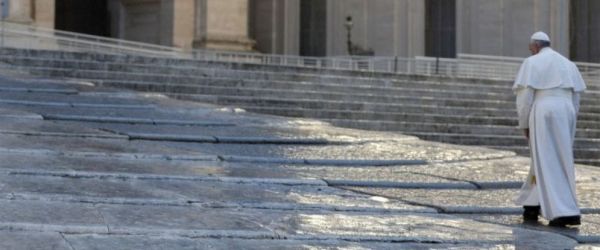God’s mercy transforms human hearts; it enables us, through the experience of a faithful love, to become merciful in turn. In an ever new miracle, divine mercy shines forth in our lives, inspiring each of us to love our neighbour and to devote ourselves to what the Church’s tradition calls the spiritual and corporal works of mercy. These works remind us that faith finds expression in concrete everyday actions meant to help our neighbours in body and spirit: by feeding, visiting, comforting and instructing them. On such things will we be judged. For this reason, I expressed my hope that “the Christian people may reflect on the corporal and spiritual works of mercy; this will be a way to reawaken our conscience, too often grown dull in the face of poverty, and to enter more deeply into the heart of the Gospel where the poor have a special experience of God’s mercy” (ibid., 15). For in the poor, the flesh of Christ “becomes visible in the flesh of the tortured, the crushed, the scourged, the malnourished, and the exiled… to be acknowledged, touched, and cared for by us” (ibid.). It is the unprecedented and scandalous mystery of the extension in time of the suffering of the Innocent Lamb, the burning bush of gratuitous love. Before this love, we can, like Moses, take off our sandals (cf. Ex 3:5), especially when the poor are our brothers or sisters in Christ who are suffering for their faith.
In the light of this love, which is strong as death (cf. Song 8:6), the real poor are revealed as those who refuse to see themselves as such. They consider themselves rich, but they are actually the poorest of the poor. This is because they are slaves to sin, which leads them to use wealth and power not for the service of God and others, but to stifle within their hearts the profound sense that they too are only poor beggars. The greater their power and wealth, the more this blindness and deception can grow. It can even reach the point of being blind to Lazarus begging at their doorstep (cf. Lk 16:20-21). Lazarus, the poor man, is a figure of Christ, who through the poor pleads for our conversion. As such, he represents the possibility of conversion which God offers us and which we may well fail to see. Such blindness is often accompanied by the proud illusion of our own omnipotence, which reflects in a sinister way the diabolical “you will be like God” (Gen 3:5) which is the root of all sin. This illusion can likewise take social and political forms, as shown by the totalitarian systems of the twentieth century, and, in our own day, by the ideologies of monopolizing thought and technoscience, which would make God irrelevant and reduce man to raw material to be exploited. This illusion can also be seen in the sinful structures linked to a model of false development based on the idolatry of money, which leads to lack of concern for the fate of the poor on the part of wealthier individuals and societies; they close their doors, refusing even to see the poor.
For all of us, then, the season of Lent in this Jubilee Year is a favourable time to overcome our existential alienation by listening to God’s word and by practising the works of mercy. In the corporal works of mercy we touch the flesh of Christ in our brothers and sisters who need to be fed, clothed, sheltered, visited; in the spiritual works of mercy – counsel, instruction, forgiveness, admonishment and prayer – we touch more directly our own sinfulness. The corporal and spiritual works of mercy must never be separated. By touching the flesh of the crucified Jesus in the suffering, sinners can receive the gift of realizing that they too are poor and in need. By taking this path, the “proud”, the “powerful” and the “wealthy” spoken of in the Magnificat can also be embraced and undeservedly loved by the crucified Lord who died and rose for them. This love alone is the answer to that yearning for infinite happiness and love that we think we can satisfy with the idols of knowledge, power and riches. Yet the danger always remains that by a constant refusal to open the doors of their hearts to Christ who knocks on them in the poor, the proud, rich and powerful will end up condemning themselves and plunging into the eternal abyss of solitude which is Hell. The pointed words of Abraham apply to them and to all of us: “They have Moses and the prophets; let them hear them” (Lk 16:29). Such attentive listening will best prepare us to celebrate the final victory over sin and death of the Bridegroom, now risen, who desires to purify his Betrothed in expectation of his coming.
[Pope Francis, Message for Lent 2016]












